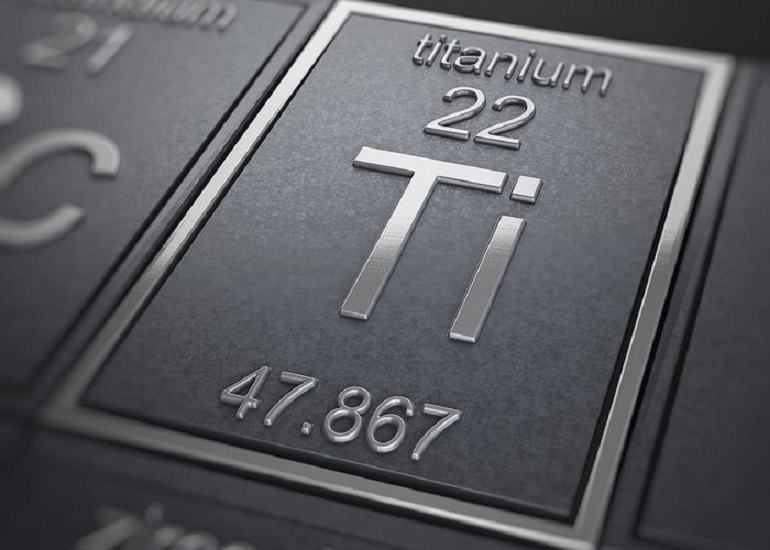Physical Properties of Titanium

Physical Properties of Titanium
Titanium is a silvery-white transition metal characterized by lightweight, high strength, and metallic luster. Titanium is relatively abundant in the earth's crust and ranks 10th among all elements. However, titanium is considered to be a rare metal, because its existence in nature is relatively dispersed and difficult to extract. Beyond the above properties of titanium and basic knowledge about titanium, what else should we know about titanium? In this article, we will take a look at some physical properties of titanium.

Physical Properties of Titanium
1. Titanium has a metallic luster and ductility. Titanium has a density of 4.5 g / cm3, a melting point of 1,660 ± 10 ° C, a boiling point of 3287 ° C, valences of +2, +3, and +4, and an ionization energy of 6.82 electron volts.
2. The main characteristics of titanium are small density, high mechanical strength, and easy processing. The plasticity of titanium mainly depends on its purity, the purer the titanium, the greater the plasticity.
3. Titanium has good corrosion resistance and is not affected by the atmosphere and seawater. At room temperature, titanium will not be corroded by less than 7% hydrochloric acid, less than 5% sulfuric acid, nitric acid, aqua regia, or dilute alkaline solutions. Only hydrofluoric acid, concentrated hydrochloric acid, concentrated sulfuric acid, etc. can act on it.

Physical Properties of Titanium
4. Titanium is an important alloying element in steel and alloys. The density of titanium is 4.506-4.516 grams / cubic centimeter (20 ° C), which is higher than aluminum and lower than iron, copper, and nickel, but its specific strength is the highest in metal.
5. Titanium has a melting point of 1668 ± 4 ° C, latent heat of fusion of 3.7-5.0 kcal / g atom, a boiling point of 3260 ± 20 ° C, latent heat of vaporization of 102.5-112.5 kcal / g atom, the critical temperature of 4350 ° C, and critical pressure of 1130 atm.
6. Titanium has poor thermal conductivity and electrical conductivity, which is similar to or slightly lower than stainless steel. Titanium has superconductivity. The critical temperature of pure titanium is 0.38-0.4K.
7. At 25 ° C, the heat capacity of titanium is 0.126 calories/gram atom · degree, the enthalpy of heat is 1149 calories/gram atom, and the entropy is 7.33 calories/gram atom · degree. Titanium metal is a paramagnetic substance with a magnetic permeability of 1.00004.
8. Titanium has plasticity. The elongation of high-purity titanium can reach 50-60%, and the shrinkage rate of the section can reach 70-80%, but the shrinkage strength is low (that is, the strength generated when shrinking).
9. The presence of impurities in titanium greatly affects its mechanical properties, especially interstitial impurities (oxygen, nitrogen, carbon) can greatly increase the strength of titanium and significantly reduce its plasticity. The good mechanical properties of titanium as a structural material are achieved by strictly controlling the appropriate impurity content and adding alloying elements.
10. Titanium is not ferromagnetic, and nuclear submarines built with titanium need not worry about magnetic mine attacks.
Conclusion
Thank you for reading our article, and we hope it can help you have a better understanding of the physical properties of titanium. If you want to know more about titanium and other refractory metals, you can visit Advanced Refractory Metal (ARM) for more information.
Headquartered in Lake Forest, California, USA, ARM is one of the leading manufacturers & suppliers of refractory metals throughout the world. We provide our customers with high-quality refractory metal products such as tungsten, molybdenum, tantalum, rhenium, titanium, and zirconium at a very affordable price.
{{item.content}}
LEVE A REPLY
{{item.children[0].content}}
{{item.content}}






